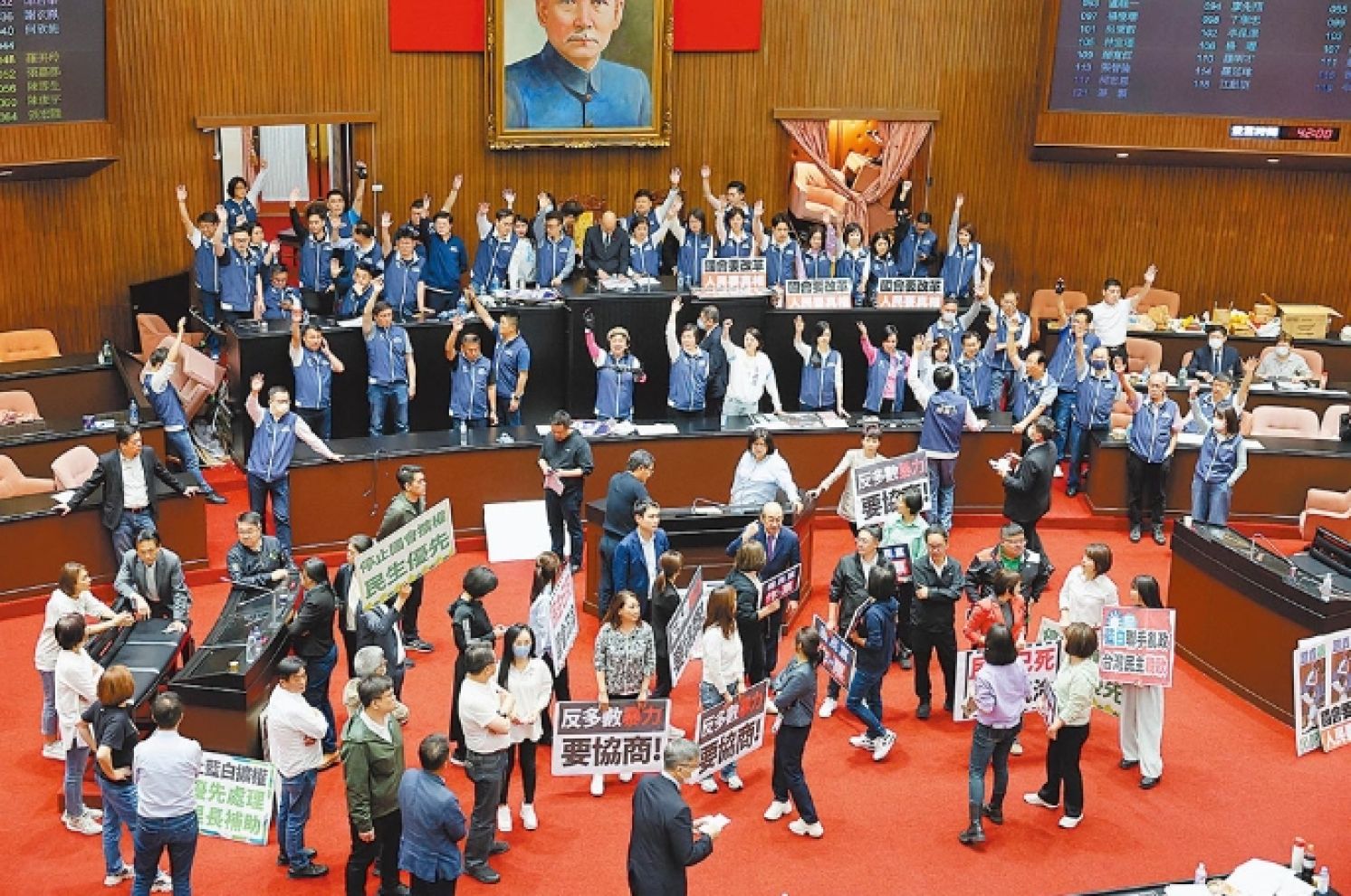
President Lai's Uniting Party Against Dissidents:Is Democracy Just a Matter of Proving Allegiance?
United Daily News Editorial, July 24, 2024
Over the past few days, President Lai Ching-te has led the party and government to fight against dissidents, with fruitful results. He has directed the government to supervise the four-way petition to interpret the Constitution. Last week, the Constitutional Court unsurprisingly complied with him and froze parliamentary reform legislation, blocking the opposition party’s attempts to reform and revitalize the functions of the Legislative Yuan. Two days after, at the ruling Democratic Progressive Party’s (DPP) National Congress, he recruited people from various factions within the party to launch the “New Lai Faction” era. The only upset is that Legislator Chen Ting-fei, the DPP member whom Lai tried his best to suppress, won the highest vote for Central Executive Committee. Furthermore, the faction backing former President Tsai Ing-wen has not given up, showing there still remain obstacles to President Lai’s sole leadership.
The DPP National Congress may seem like a “surrendering of factions to Lai,” but in fact there is a hidden undercurrent. Lin I-chin, a disciple of Lai, was defeated in the Central Standing Committee election due to a vote that was spoiled because it was stamped with Lu Lin Hsiao-feng’s fingerprints. Lu Lin is a member of the faction led by Cheng Wen-tsan, former vice premier and Taoyuan mayor. It seems this invalid ticket was expressing the Cheng faction’s dissatisfaction with Lai. It is said that someone who agreed to vote for Lu Lin that day was instructed at the last minute to withhold their vote. In her consequent anger, Lu Lin stamped the vote for Lin so as to make it invalid. Thus, it seems the party’s weaker factions have also found the new “Lai faction’s” self-satisfaction intolerable.
Another surprise in this election is that the seemingly weakened “Tsai faction” actually still shows resilience. The “Tsai faction” won four seats on the Central Executive Committee, whereas it was expected to get only one seat. Contrary to expectations, due to the invalid votes that day, the decision ended up having to be drawn by lots, and the “Tsai faction” was lucky enough to win two extra seats. Although the “new Lai faction” won six seats, the number of “Lai faction” and “non-Lai faction” seats are ultimately close to a tie. This shows that Lai’s “hard centralization” of power within the party is not as smooth sailing as originally imagined. If the “non-Lai factions” gather around Kaohsiung Mayor Chen Chi-mai in the future, this may form a strong check and balance against Lai.
In retrospect, the Constitutional Court’s temporary injunction on parliamentary reform legislation is not a surprise. But what is alarming is the “flanking of justice.” When the ultimate legal interpreter is willing to serve as a pawn in political battles, like the flankers of a cyber army, such a supposed guardian of the Constitution may become little more than a mascot for the ruler. With President Lai who has just 40 percent public support, the Constitutional Court has demeaned itself to basically become his “lawyer.” Is the skewness of the system not worrying?
The Cheng corruption case and the Constitutional Court’s freezing the reform bill all showed Lai’s personal command. In the Cheng case, President Lai excluded dissidents in the name of “fighting corruption,” but did not ask why the case had been delayed for seven years and who in the judicial system had been obstructing the “handling” of the case. On constitutional interpretation, Lai himself interfered with the judiciary. He only needed to make a few seemingly righteous speeches to obtain the Constitutional Court’s obedience. If the president’s intervention is everywhere in institutional operations, can power be checked and balanced? How can the president’s supreme power be restrained?
Unfortunately, President Lai has blocked the path to congressional reform through the hands of fifteen justices in the Legislative Yuan, the only space where opposition voices and checks and balances exist. President Lai only has 40 percent public support, but he thinks he can dominate the whole country with just one hand. Besides, what public opinion basis do the justices have for their decision? Why should they veto the congressional reform bill proposed by the legislators, that the people themselves voted for? When President Lai accused the opposition party of “using democracy to counter democracy,” wasn’t he the one who in fact truly “confiscated” the people's democracy? When he delivered a speech in Taiwanese throughout the party’s congress, claiming he wanted to establish a Taiwan-centric national identity, the arrogance and extremity he displayed was completely disproportionate for a “40% president.”
President Lai used the “fake hand” of the Constitutional Court to “confiscate” public opinion; to suppress opposition; allow the DPP to use local policies to distribute profits, even involving the judiciary system and the gangs. Such a “grand president” is only interested in status, regardless of right or wrong, and treats the constitutional organs like a “warlord,” asking only for submission and ignoring public opinion. Lai’s party is united and opposes dissidents; cases will be “handled” only where the political opponents are; and the “native district” will always be above the law. Is Taiwan’s democracy only limited to proofs of allegiance?